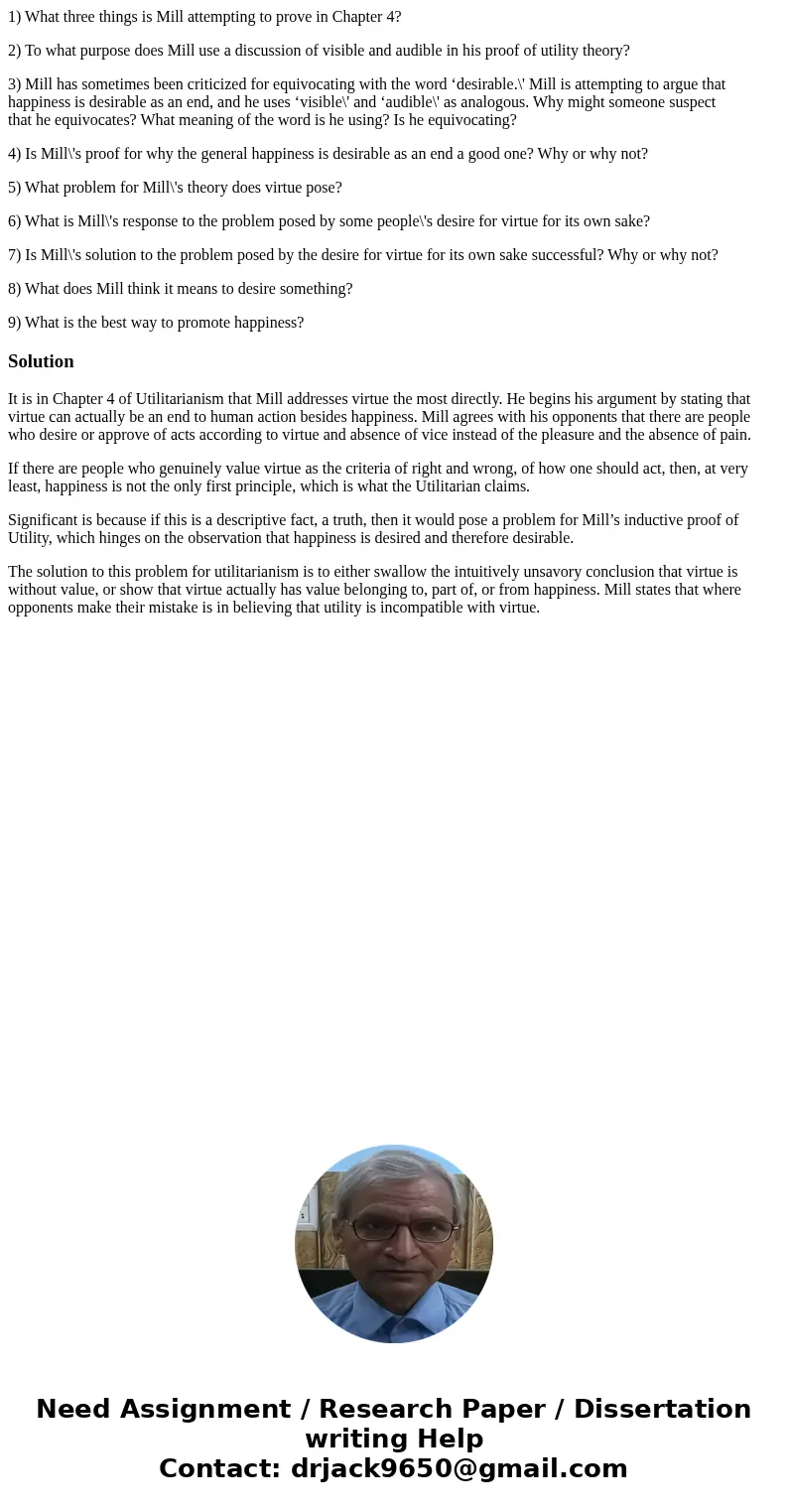1 What three things is Mill attempting to prove in Chapter 4
1) What three things is Mill attempting to prove in Chapter 4?
2) To what purpose does Mill use a discussion of visible and audible in his proof of utility theory?
3) Mill has sometimes been criticized for equivocating with the word ‘desirable.\' Mill is attempting to argue that happiness is desirable as an end, and he uses ‘visible\' and ‘audible\' as analogous. Why might someone suspect that he equivocates? What meaning of the word is he using? Is he equivocating?
4) Is Mill\'s proof for why the general happiness is desirable as an end a good one? Why or why not?
5) What problem for Mill\'s theory does virtue pose?
6) What is Mill\'s response to the problem posed by some people\'s desire for virtue for its own sake?
7) Is Mill\'s solution to the problem posed by the desire for virtue for its own sake successful? Why or why not?
8) What does Mill think it means to desire something?
9) What is the best way to promote happiness?
Solution
It is in Chapter 4 of Utilitarianism that Mill addresses virtue the most directly. He begins his argument by stating that virtue can actually be an end to human action besides happiness. Mill agrees with his opponents that there are people who desire or approve of acts according to virtue and absence of vice instead of the pleasure and the absence of pain.
If there are people who genuinely value virtue as the criteria of right and wrong, of how one should act, then, at very least, happiness is not the only first principle, which is what the Utilitarian claims.
Significant is because if this is a descriptive fact, a truth, then it would pose a problem for Mill’s inductive proof of Utility, which hinges on the observation that happiness is desired and therefore desirable.
The solution to this problem for utilitarianism is to either swallow the intuitively unsavory conclusion that virtue is without value, or show that virtue actually has value belonging to, part of, or from happiness. Mill states that where opponents make their mistake is in believing that utility is incompatible with virtue.

 Homework Sourse
Homework Sourse